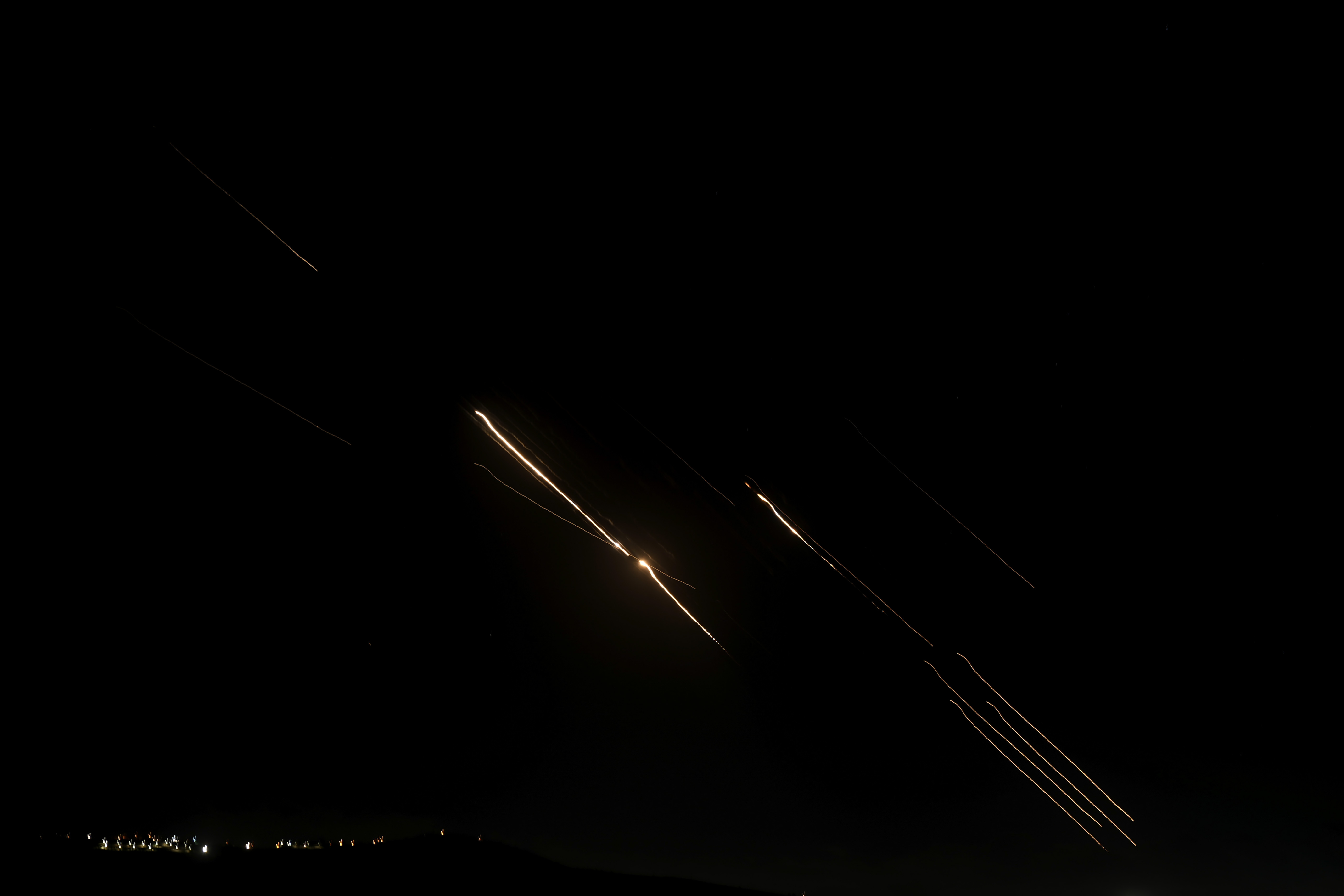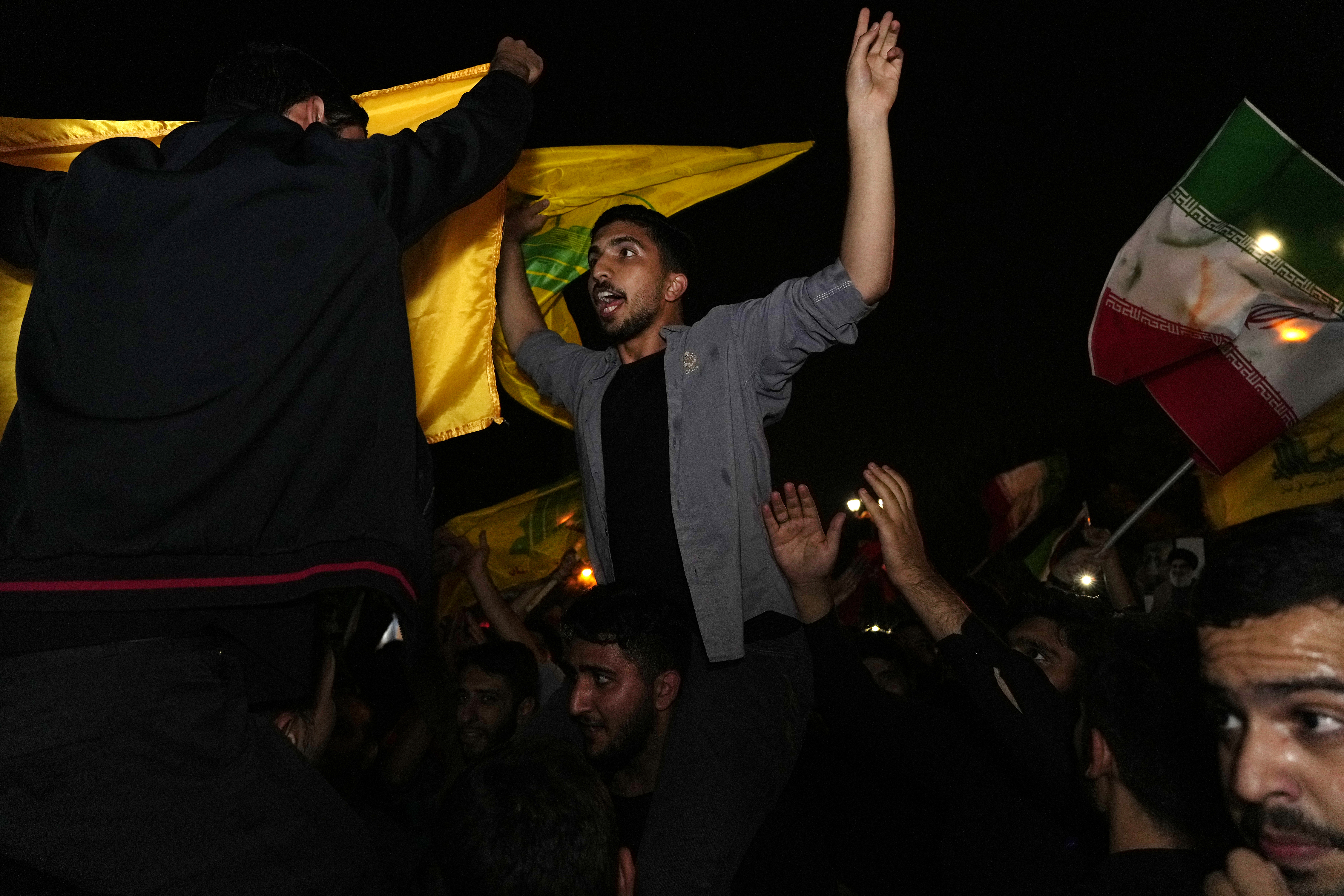
TEHERAN/JERUSALEM- Iran's atomic chief said on Wednesday that his country's armed forces have established necessary deterrence after Israel threatened to strike Iranian nuclear facilities.
President of the Atomic Energy Organization of Iran Mohammad Eslami made the remarks during an interview on the sidelines of a cabinet meeting in the Iranian capital Teheran, while responding to Israeli threats of potential attacks on Iranian nuclear sites following Tehran's missile strike on targets in Israel Tuesday night, the Iranian Students' News Agency reported.
US news portal Axios reported Wednesday that Israeli officials warned if Iran retaliates against a potential Israeli response to Tuesday's missile attack, "all options will be on the table, including strikes on Iran's nuclear facilities."
In a post on social media platform X early Wednesday, former Israeli Prime Minister Naftali Bennett said, "Israel has now its greatest opportunity in 50 years to change the face of the Middle East."
"We must act now to destroy Iran's nuclear program, its central energy facilities," he added.
Iran launched about 180 ballistic missiles at targets in Israel on Tuesday evening. Tehran claims this action was in retaliation for Israel's assassinations of Hamas leader Ismail Haniyeh, Hezbollah leader Hassan Nasrallah, and senior IRGC commander Abbas Nilforoushan, as well as Israel's escalating "malicious acts" against Lebanese and Palestinian people with US support.
Meanwhile, Iran's Foreign Minister Seyyed Abbas Araghchi said the country's military action against Israel has concluded.
He made the remarks in a post on social media platform X early Wednesday while elaborating on a missile attack by Iran Tuesday night against targets inside Israel.
ALSO READ: Iran denounces Western countries for imposing new sanctions on Tehran
Araghchi said Iran on Tuesday evening "exercised self-defense" under Article 51 of the United Nations Charter, "targeting solely military and security sites in charge of genocide in Gaza and Lebanon."
He added Iran took the action after exercising "tremendous restraint for almost two months, to give space for a ceasefire in Gaza."
Iran's action was concluded unless Israel would decide to "invite further retaliation," a scenario in which Teheran's response would be "stronger and more powerful," he said.
Araghchi said Israel's "enablers now have a heightened responsibility to rein in the warmongers in Tel Aviv instead of getting involved in their folly."
READ MORE: Israel rejects US-backed Lebanon ceasefire proposal
Commenting on the attack, Iran's Defense Minister Aziz Nasirzadeh said on Tuesday that if Israel "dares respond, our subsequent actions would be far more severe, and we would use a more advanced array of the missiles that we have at our disposal."

Also on Tuesday, Israeli Prime Minister Benjamin Netanyahu vowed that Israel would retaliate against Iran's missile attack earlier in the day, during which 180 missiles were fired toward Israel.
"Iran made a big mistake tonight, and it will pay for it," said Netanyahu during a Security Cabinet meeting, which discussed Israel's ground campaign in Lebanon and possible responses to Iran's missile attack.
At a press briefing earlier, the Israeli military spokesman Daniel Hagari confirmed that several Iranian missiles hit central and southern Israel, and "quite a few" were intercepted by air defense systems.
ALSO READ: Just solution needed, not more violence
A 38-year-old Palestinian was killed as one of the missiles exploded near Jericho city in the occupied West Bank, local Civil Defense said. There has been no immediate report of fatalities within Israel yet.


